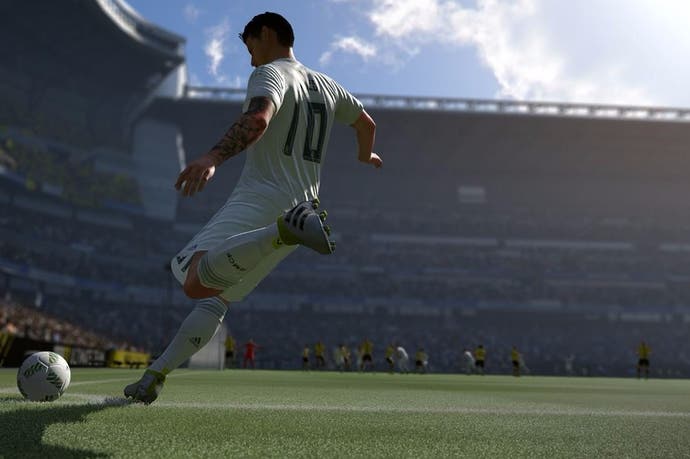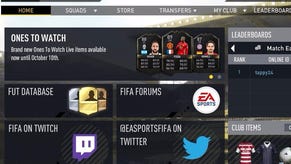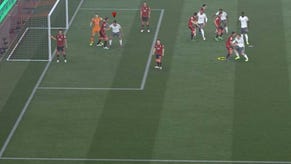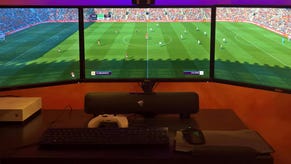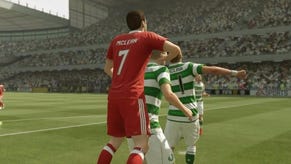FIFA 17 review
Two points dropped.
It's been 23 years since FIFA International Soccer, the first FIFA game, was released. For more than two decades, EA has taken its most successful product, tweaked it slightly, added a few marketing phrases and released new annual editions to huge success. Often it's little more than the rosters that can objectively be said to have 'improved'. But still we, as a gaming public, lap it up. If EA had gotten a little complacent, you could hardly blame them.
Complacent, however, is not a word you could use to describe FIFA 17. Boasting both brand new tech and a major new game mode, it feels like much a bigger step, apart from between consoles, than we're used to taking in a mere 12 months. Whether this comes about from a feeling of increased threat from its candy-dispensing rivals, or some residual guilt towards its loyal fanbase, it's hard to say. What we can be unequivocal about is EA's ambition - to create a landmark release in the series. How successful it's been in achieving that is harder to say.
Let's start with Frostbite, EA's much-trumpeted game engine - one that, it's claimed, will take players "to new football worlds" (the worlds of Battlefield and Mass Effect, presumably). Taking front and centre stage in much of the game's advertising messaging, it's clear EA hope this will be a platform for the franchise to build on for at least the next four to five years. It's a shame, then, that playing in this bold "new world" feels so disappointingly familiar.
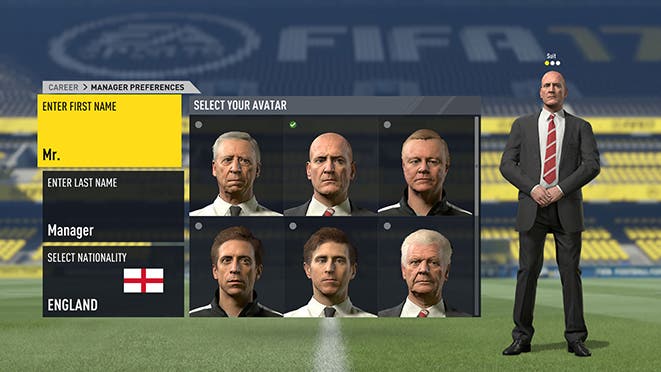
Gameplay has barely moved forward at all from last year - in many ways, in fact, it has regressed, with new animations seeming to create problems with the flow of the game. While FIFA 16 at times felt a little too static, players now feel twitchy and less in control, taking that split-second too long to respond to your commands. Passing feels rigid and unresponsive, and too often ends targeted at the wrong player - a result of poorly implemented control assistance. Shooting, too, suffers, as you can't always rely on your players to strike the ball in the manner you expect them to.
Carrying on FIFA's tradition of alternating between pace being over- and underpowered, the game is once again just that little bit too fast. It's hard to get a foothold in a match and speed-freaks like Walcott and Aubameyang can be almost unplayable if you come up against a shrewd opponent. Whether this feels like a backwards step to you is perhaps a matter of taste - many felt FIFA 16 was a little too slow. But anything that encourages one-dimensional play must be seen as a negative.
Set pieces see their biggest retooling in years. Gone are the ghostly arrows appearing out of dead balls, and as a result putting in high-quality deliveries has become considerably trickier. Corners now offer you a cursor to place in the penalty box, with the length of your button-press determining the arc of the ball. Free kicks are taken essentially blind. And penalties are even stranger, with the left-stick now controlling your run-up and the right, unguided, aiming your strike.
I welcome these parts of the game becoming harder - it has been far too easy in previous FIFAs to score free kicks from the edge of the box, for example. But some of the changes, particularly corners, feel unnatural and at odds with the years of set-piece development that have preceded them. No doubt we'll have another new system in a couple of year's time.
The biggest tactical change comes in the way you can now more easily shield the ball - players are stronger and, with their back to a defender, much harder to dispossess. This makes target men a more viable option than in previous years, encouraging a bit more variety in playing styles, but the balance simply isn't quite right. Winning back possession can be maddeningly hard, even on the easier difficulty settings.
The feeling that dominated most of my play sessions was one of sore-thumbed frustration from chasing the ball. Slide tackles have been nerfed, and so all you can do is chase, chase and try to get the occasional foot in. In many matches, particularly against CPU opponents, I simply gave up - I was better off waiting for a goal kick or throw-in than I was implementing any kind of press.
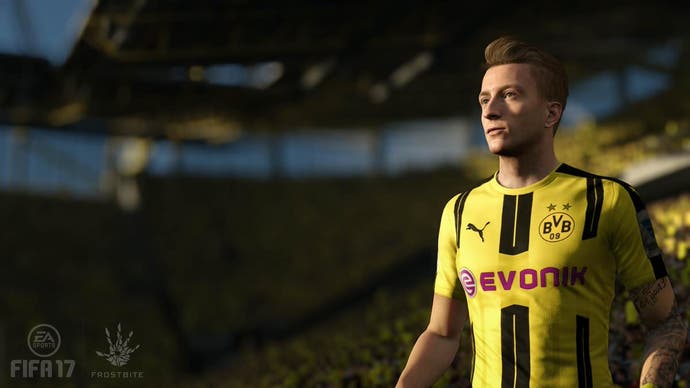
The AI shows some improvement in an attacking sense, with new kinds of runs being made from a wider variety of positions, but this is let down on the defensive side, with your CPU teammates (or opposition) too frequently being pulled out of position. Far too often have I found myself galloping free from the half-way line thanks to a simple through ball, even on higher difficulty levels. This barely happens in real-life any more - defenders are too well-drilled, too athletic - and it hardly ever happens in rival football games.
What improvements there have been are almost entirely cosmetic, where Frostbite really comes into its own - for what it's worth, this is the best-looking football game ever. But even this polish has limited impact when viewing a game in standard TV-camera view mode. Lighting, stadiums and weather effects contribute so little to your enjoyment they're almost not worthing talking about. And while some of the player models do look stunning, particularly in close-up, others look like they haven't been updated for two or three years. Anthony Martial looks great, but Daniel Sturridge still looks like an alien. The inconsistency is hard to forgive, even if Konami's new licenses are to blame. At its most rudimentary level, "graphics" is the one thing EA could claim to have raised the bar on.
It almost goes without saying that all other aspects of presentation are simply top-notch, from the in-game music and hours of bespoke commentary to the slick in-game overlays and menu design. FIFA feels like a game made by fans for fans, something its rival, with all its oddities, has never really been able to claim.
The one big benefactor of the Frostbite engine is The Journey, a bold and innovative new story mode that deserved to be built around a much stronger gameplay experience. By blending seamlessly with the on-pitch action, the cutscenes have much greater impact - you really feel like you're playing with the characters in the story, rather than simply having some FMV slapped on to a detached series of challenges.
The Journey's nuts and bolts are fairly simple - a narrative unlocked bit by bit by completing different challenges in-match, in conversations and on the training ground. The dialogue options are limited - you can basically choose to be a twerp and get more Twitter followers (which equals cash) or be nice and get picked more often by the manager. Whether you decide to be Warren Barton or Joey, however, the story unfolds in the same way - what changes is how quickly you progress.
It was with childlike glee that I lived through Alex Hunter on his nascent Premier League career. You feel his excitement when he meets Premier League stars, takes a private jet or spots his new gaffer for the first time. It may tug on the heartstrings a little too often, but the story's touching, more thoughtful than you'd think and genuinely funny and warm throughout. It makes you wonder why we've never really seen anything of its like, in this sport at least, before.
The cycle of train, play, press conference, cut-scene and the feeling that the whole enterprise is one long, glorified tutorial does begin to get a little tiresome after a while - training, in particular, isn't much fun, and I've already laid out my problems with the match engine - but the story is strong enough to pull you through. All told, it's a memorable and enjoyable experience that every football fan will appreciate - and one EA deserve a great deal of credit for.
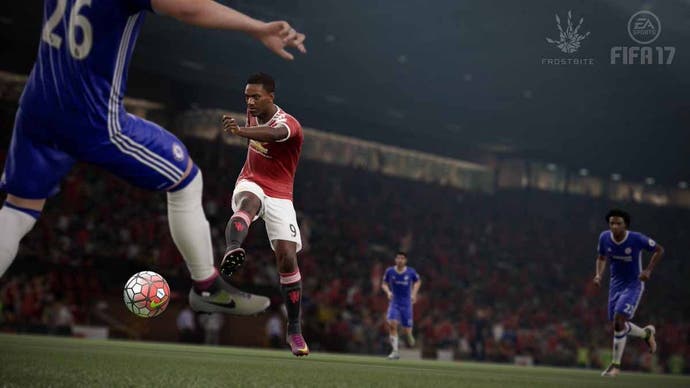
While the two headline-grabbing new features have understandably been the focus of EA's attentions in the build-up to release, FIFA's other major modes thankfully haven't been too neglected.
FUT receives a brand new competitive mode, FUT Champions, in which racking up wins midweek grants entry to a weekend tournament complete with (drum roll) real life prizes. Meanwhile a new squad-building challenges incentivise building a variety of teams based around different leagues and skill levels. For those of for whom Ultimate Team quickly becomes a slog each year as you save up for star players, the injection of more variety - complementing last year's draft mode - is hugely welcome.
Although early days for FIFA's servers, I've consistently found opponents within seconds across various modes, and the matches have, by and large, been free of connection issues. With pace overpowered once more, games do tend to descend into a series of dribbles and lofted through balls, especially as you progress to higher skill levels. But that may feel like home comforts to players who struggled with last year's slower game.
Career mode has been fine-tuned, offering more control of your club and, for the first time, the option to create a manager avatar that stands, cross-armed on the sideline. And beloved modes like Online Seasons and Pro Clubs return once more to deliver what, as ever, is a truly unparalleled suite of football gaming options.
What value is there, though, in having all these different ways of playing, if the playing itself just isn't that enjoyable? That's the question I've had to ask myself as I've sunk hours into The Journey, FUT, career mode, and will doubtless continue to ponder over the coming weeks. EA sells such an attractive package it's hard not to be lured in. But that package is devalued hugely when what lies within is so fundamentally dissatisfying.
